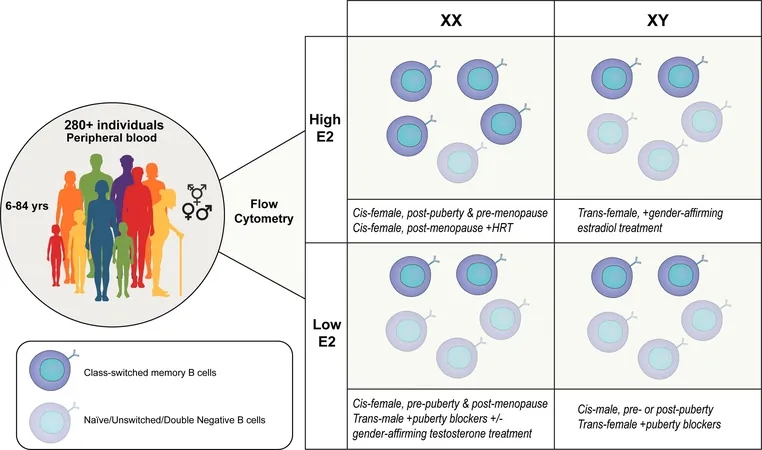
The Surprising Role of Midkine in Helping Tumors Outsmart Immunotherapy
2025-04-02
Author: Wei Ling
Introduction
In the relentless battle against cancer, understanding how tumors evade the immune system is crucial. Recent advances in research reveal that melanomas—the most aggressive form of skin cancer—often slip through the cracks of our immune defenses, resulting in more than half of patients failing to respond to current immunotherapy treatments. One of the most promising leads in unraveling this enigma comes from a groundbreaking study by the Melanoma Group at the National Cancer Research Centre (CNIO), led by Marisol Soengas.
Key Findings from the Study
Published in *Nature Cancer*, this pivotal research uncovers a specific mechanism by which melanoma cells evade detection by the immune system. The team, which includes first author Xavier Catena from the University of Lund, has determined that melanoma cells produce a protein known as Midkine. This protein has a dual role: it not only shields the tumors from immune recognition but also promotes their growth and spread.
Role of Dendritic Cells
Dendritic cells, the immune system’s gatekeepers, are crucial for recognizing malignant cells. They gather information on threats, such as tumors, and relay it to cytotoxic T lymphocytes, the assassins that destroy cancerous cells. However, the research shows that Midkine drastically reduces the number of these important dendritic cells and alters their functionality, turning them from defenders into unwitting allies of the tumor.
Impact of Midkine
Soengas highlights this shocking finding: "Midkine acts as both a shield and an accelerator. It stops the immune system from recognizing tumor cells and simultaneously enhances the malignant cells' progression." This manipulation complicates the landscape for developing effective therapies, as tumors use this tactic right from the early stages and on a systemic level.
Therapeutic Implications
The implications of the study extend beyond understanding tumor evasion; they also illuminate potential therapeutic strategies. Animal models indicate that blocking Midkine can significantly boost the effectiveness of vaccines designed to target dendritic cells. Moreover, it enhances the action of popular immunotherapies, such as immune checkpoint inhibitors, which have shown promise in various cancers.
Broader Cancer Spectrum
Delving deeper, the researchers examined patient data across a wide spectrum of cancers, including lung, breast, endometrial, adrenal, and mesothelioma. They discovered a gene signature related to Midkine in dendritic cells, which correlates with poorer prognosis. This suggests that targeting the Midkine protein could reinvigorate dendritic cells and improve the treatment effectiveness for various aggressive tumors.
Conclusion
The findings of the CNIO Melanoma Group provide a fascinating glimpse into how tumors may commandeer the immune system to their advantage. As cancer research continues to evolve, targeting Midkine to reactivate our immune defenses presents a potentially revolutionary approach to combat not just melanoma, but a range of malignancies. The quest for more effective therapies takes a promising turn, and as this knowledge matures, it may pave the way for breakthroughs that could change the landscape of cancer treatment forever.
Stay Tuned!
Stay tuned for more updates on this cutting-edge research that could reshape how we fight cancer!



 Brasil (PT)
Brasil (PT)
 Canada (EN)
Canada (EN)
 Chile (ES)
Chile (ES)
 Česko (CS)
Česko (CS)
 대한민국 (KO)
대한민국 (KO)
 España (ES)
España (ES)
 France (FR)
France (FR)
 Hong Kong (EN)
Hong Kong (EN)
 Italia (IT)
Italia (IT)
 日本 (JA)
日本 (JA)
 Magyarország (HU)
Magyarország (HU)
 Norge (NO)
Norge (NO)
 Polska (PL)
Polska (PL)
 Schweiz (DE)
Schweiz (DE)
 Singapore (EN)
Singapore (EN)
 Sverige (SV)
Sverige (SV)
 Suomi (FI)
Suomi (FI)
 Türkiye (TR)
Türkiye (TR)
 الإمارات العربية المتحدة (AR)
الإمارات العربية المتحدة (AR)